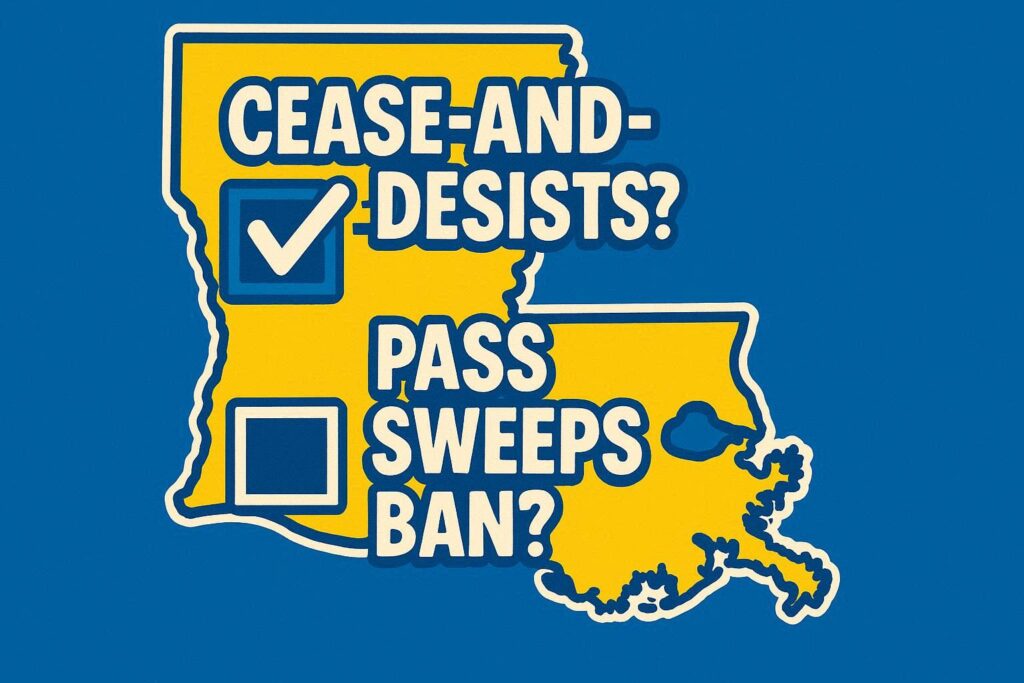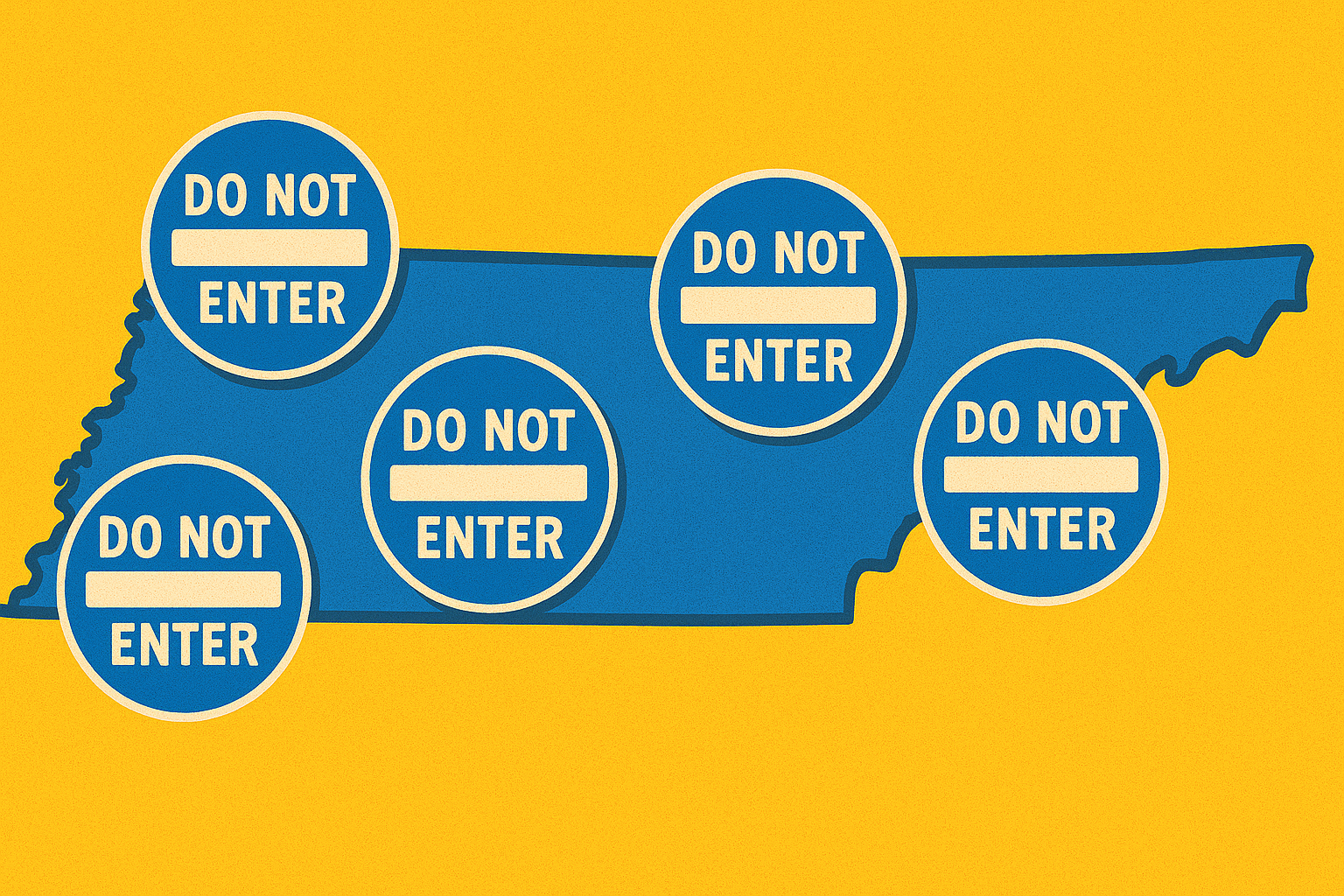If the California Senate Appropriations Committee opts to pull Assembly Bill 831 out of its suspense file during Friday’s hearing and advance the bill banning sweepstakes casinos to the Senate for a floor vote, there will only be a few remaining steps before AB831 becomes law.
And one of the steps raises ethical concerns over a potential conflict of interest.
First, the Senate would need to approve AB831 by a simple majority. So, 21 out of 40 votes.
After that, the bill would shift back over to the Assembly even though the Assembly already technically approved AB831 — but that was back when it was the original AB831, before it was gutted and amended to become the sweeps ban.
But it wouldn’t need to progress through every Assembly stage the original bill did. It would only have to be cleared by the Assembly Governmental Organization Committee before advancing to the Assembly, where a 41-out-of-80 majority would be required for passage. After that, it would be off to Gov. Gavin Newsom’s desk for his signature.
It’s that Governmental Organization Committee step that raises eyebrows.
Because one of the committee members has received significant financial contributions from the large gaming tribe that has sponsored AB831.
‘Over $100,000’ from AB831 tribal sponsor
Assemblymember James Ramos is a lifelong resident of the San Manuel Indian Reservation in San Bernardino County. When he was elected to the California Assembly in 2018, he became the first Native American to serve in the legislature. He is known for his advocacy of, among other topics, tribal rights and sovereignty, as well as statewide education, and public health
He is also a member of the Assembly Governmental Organization Committee, which could serve as a lynchpin to the success or demise of California’s sweeps ban bill. He also is the author of the original AB831 whose language was entirely stripped and replaced with its current language back in June.
And here’s where the money comes into play:
Each lawmaker in California must disclose any income they receive outside their standard legislative salary. In Ramos’ Statement Of Economic Interests form, obtained by Sweepsy, he discloses that he received “over $100,000” of gross income from the San Manuel Band of Serrano Mission Indians in 2024.
Over $100,000 is the highest possible categorization of income received. Therefore, we can’t know if it was $100,001 or significantly higher.
This is the income Ramos receives for being a member of the San Manuel Band of Serrano Mission Indians as part of “per capita tribal distribution,” according to Ramos’ filing.
The San Manuel Band of Serrano Mission Indians is another name for the Yuhaaviatam of San Manuel Nation, the tribe that owns Yamaava’ Resort & Casino, the largest casino on the West Coast. So the per capita tribal distribution number is fueled by the success of the casino.
As a member of the tribe, Ramos is fully entitled to this income. There is absolutely nothing wrong with him receiving this money, even as an elected official.
However, the potential conflict of interest comes into play when he is a member of a committee that will help determine the fate of a bill sponsored by the tribe that pays him north of $100,000 each year in tribal income.
Can Ramos abstain from voting on AB831?
Committee members do have the option to abstain from votes.
Under Joint Rule 44 of the California Legislature, a member who believes they have a personal or financial interest in a bill may recuse themselves from voting. If they want to vote despite the conflict, they must file a written statement before the vote, stating they have a personal interest yet can still vote objectively.
Ramos has not made any public indications whether he would vote or abstain should AB831 pass through the Senate Appropriations Committee and the full Senate and advance to his Assembly Governmental Organization Committee.
Tribal donations to Ramos’ campaigns
Ramos has won four Assembly elections — in 2018, 2020, 2022, and 2024.
Over those four elections, he has received various campaign donations from California tribal groups, ranging from large to small.
According to FollowTheMoney.org, the Ramos campaigns have received $109,000 from the Yuhaaviatam of San Manuel Nation, including $11,000 in the 2024 election. Since the 2018 election, Ramos’ campaigns have also received:
- $100,596 from Morongo Casino Resort & Spa, owned by the Morongo Band of Mission Indians
- $63,500 from the California Nations Indian Gaming Association
- $51,000 from the Soboba Band of Luiseño Indians, which owns Soboba Casino Resort
- $42,000 from the Santa Ynez Band of Chumash Mission Indians, which owns Chumash Casino Resort
- $38,800 from the Barona Band of Mission Indians, which owns Barona Resort & Casino
- $37,000 from the Pechanga Band of Mission Indians, which owns Pechanga Resort Casino
- $36,500 from the Agua Caliente Band of Cahuilla Indians, which owns the Agua Caliente Casinos
- $35,900 from the Viejas Band of Kumeyaay Indians, which owns Viejas Casino & Resort
- $33,200 from the Sycuan Band of the Kumeyaay Nation, which owns Sycuan Casino Resort
- $32,919 from the Twenty-Nine Palms Band of Mission Indians, which owns Spotlight 29 Casino
- Various other tribal donations totaling less than $30,000
There’s nothing nefarious about a politician receiving well more than $500,000 in campaign donations from California tribes. It makes sense that groups donate to campaigns of lawmakers that would advocate for their wishes if elected.
Rather, these numbers are presented to provide context for the type of financial support Ramos has from the kinds of tribes — California’s gaming tribes — most invested in AB831 passing.









